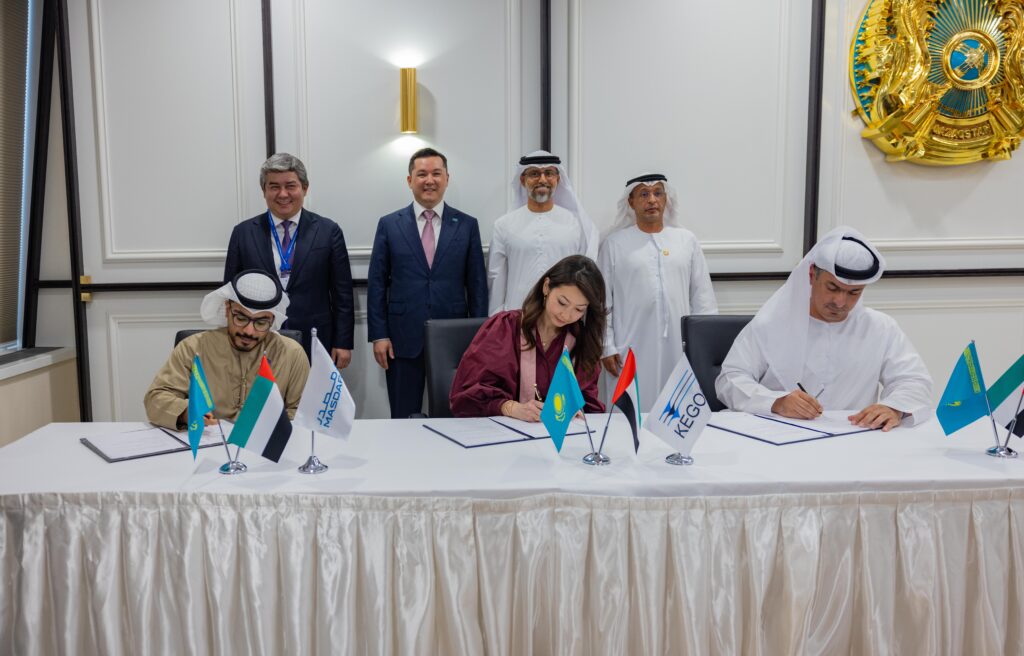We are proud to announce the signing of a landmark Memorandum of Understanding (MoU) with Kazakhstan Electricity Grid Operating Company (KEGOC) and Abu Dhabi Future Energy Company PJSC – Masdar. This strategic agreement reflects a shared commitment to enhance biodiversity outcomes and reduce wildlife-related risks associated with power transmission infrastructure across Kazakhstan.
Kazakhstan is home to some of Central Asia’s most important steppe and desert ecosystems, which serve as critical habitat for migratory and resident birds of prey, including the endangered Saker Falcon. Yet, the expansion of power infrastructure poses growing challenges for these species. This partnership aims to address those challenges by integrating biodiversity considerations into the design and management of energy infrastructure.
Under the MoU, MBZRCF will bring its global expertise in raptor conservation, risk mitigation, and biodiversity planning to advise on nature-positive solutions. Through collaboration with KEGOC and Masdar, the agreement will help ensure that Kazakhstan’s transition to a resilient and sustainable energy future is also a model for wildlife-friendly development.
“This agreement is a milestone in our mission to integrate conservation with infrastructure development,” said His Excellency Mr. Abdulla Al Qubaisi, Managing Director of the Mohamed Bin Zayed Raptor Conservation Fund. “By joining forces with KEGOC and Masdar, we are demonstrating that protecting biodiversity and advancing energy resilience can—and must—go hand in hand.”

The partnership will focus on several key actions:
- Identifying and addressing biodiversity risks across priority transmission corridors
- Promoting the use of bird-safe infrastructure designs
- Building national capacity for biodiversity monitoring and mitigation
- Supporting research and data-driven decision-making for raptor conservation
This agreement builds on MBZRCF’s ongoing work across the Eurasian flyway and reflects its mission to find science-based, collaborative solutions to the most urgent threats facing birds of prey globally.
We look forward to working closely with our partners to deliver measurable outcomes for nature, infrastructure resilience, and long-term sustainability.